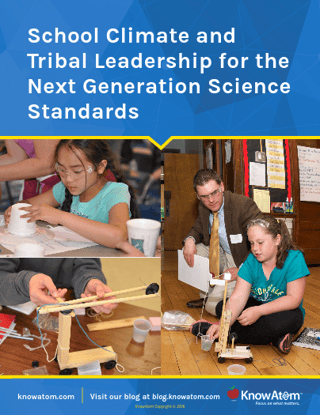In 2008, Dave Logan and John King published the book, “Tribal Leadership: Leveraging Natural Groups to Build a Thriving Organization.” This book summarized their research into the different “tribes” that make up every organization, and described how leaders can “assess, identify, and upgrade their tribes’ cultures, one stage at a time.”
The way to do this—to move your tribe from one stage to the next—comes down to two focus areas, the researchers found: the words people use and the types of relationships they form.
"Tribes emerge from the language people use to describe themselves, their jobs, and others... Tribal leaders know how to nudge language in a way that makes it morph," the authors write in the book. "Change the language in the tribe, and you have changed the tribe itself."
Understanding how groups of people form tribes, how those tribes determine the culture of a school building, and how to move tribes to higher ground will go a long way in helping school leaders—from district administrators to principals and teacher leaders—to think about what tribe their school is, and how they can move their tribe to the next stage to more effectively implement the new science standards.
Tribal Leadership and the Next Generation Science Standards
Nineteen states plus the District of Columbia have adopted the Next Generation Science Standards, while a number of other states have adapted them with slight modifications or are currently considering them. What many people don’t realize is that these new standards aren’t just a newer version of their state’s old science standards.
Instead, they’re an innovation in science standards because they require a complete rethinking of how science instruction occurs in the classroom, away from a traditional model of instruction toward a next generation one.
For teachers and classrooms to successfully make the shift to this next generation model of science instruction, there will have to be strong leadership that sets the culture to be one where everyone shares in the NGSS vision for science instruction, which is centered on students learning as scientists and engineers in the classroom.
According to the NGSS, an essential part of science education is providing students with the opportunity to “develop an understanding of the enterprise of science as a whole—the wondering, investigating, questioning, data collecting, and analyzing … In K-12 classrooms, the issue is how [students] explain both the natural world and what constitutes the formation of adequate, evidence-based scientific explanations.”
What will this look like in the classroom?
Classrooms will no longer have students sitting in rows during the entire lesson, filling out worksheets or reading textbooks to become aware.
Instead they’ll engage in the practices, often in small groups, to test their ideas. They’ll be engaged as scientists and engineers— analyzing evidence, debriefing and bringing their thinking to the table. The goal of NGSS is not to have students memorize all the facts scientists have ever discovered but to train them to be critical thinkers, to be able to create, evaluate, and analyze critically and then to apply those skills with the knowledge they’ve developed to extend their understanding as scientists and engineers in the classroom.
These are all major shifts that will affect tribes in your district, in your building, even in your community because teachers, administrators, parents and students are all members of tribes.
Achieving this vision will require leadership and in many educational environments, a significant cultural shift. Understanding how tribes emerge within a school and how tribal leaders can help nudge their tribes to higher ground can go a long way in helping leaders successfully create a next generation culture of science instruction.
This post was updated on May 3, 2018.





